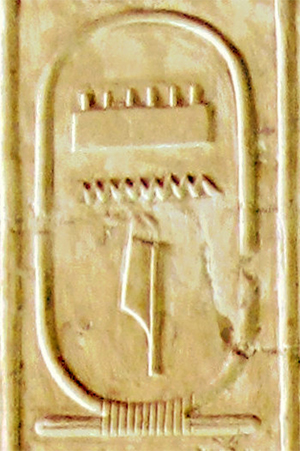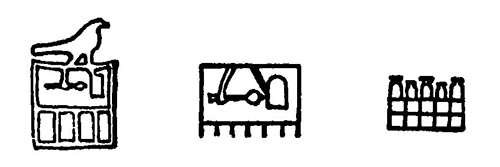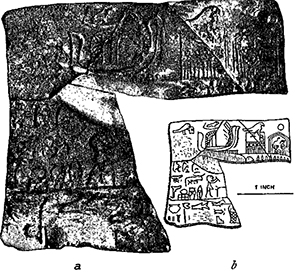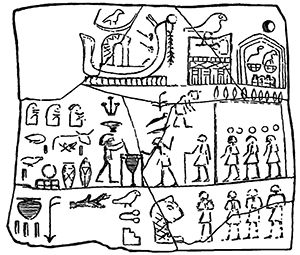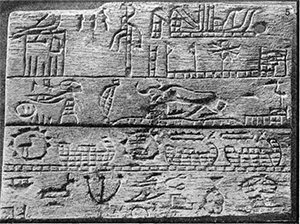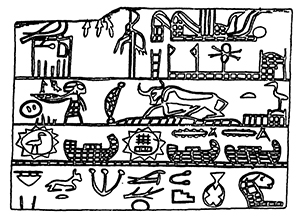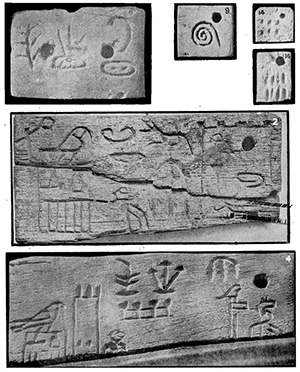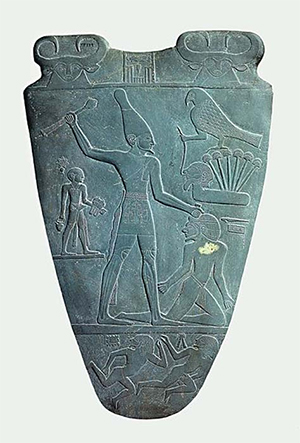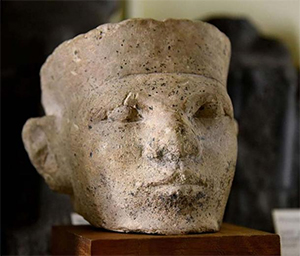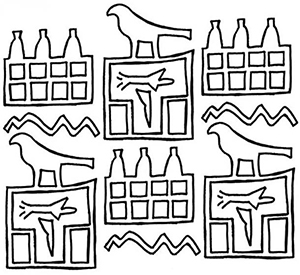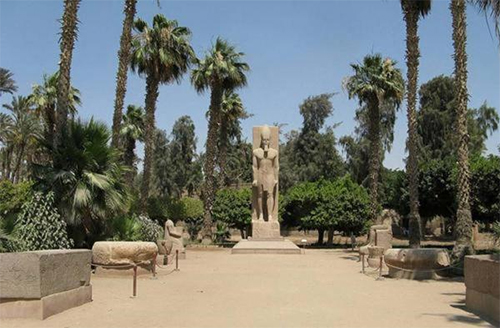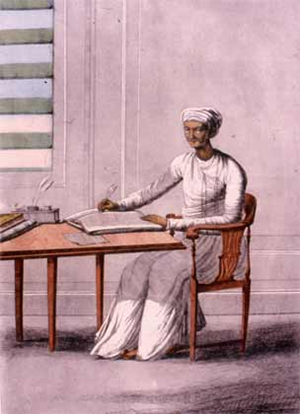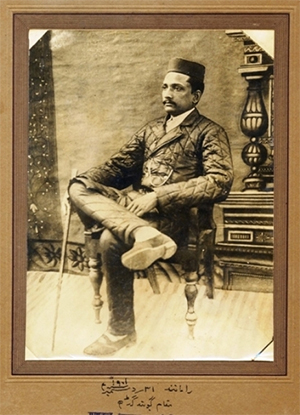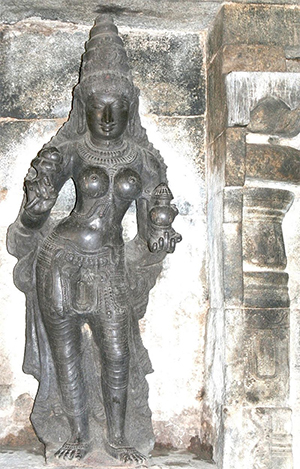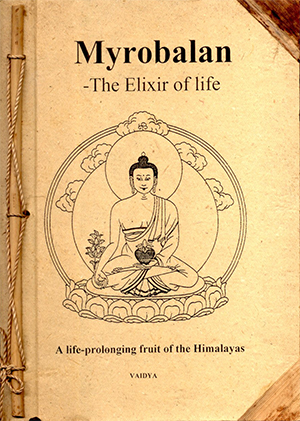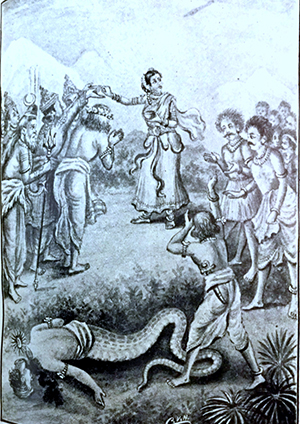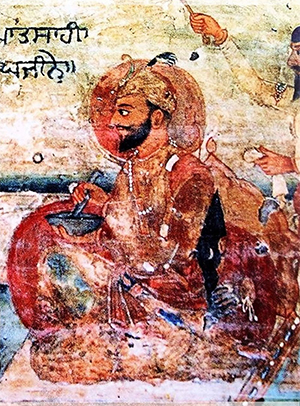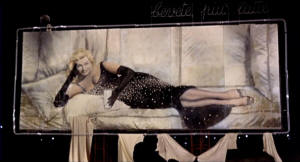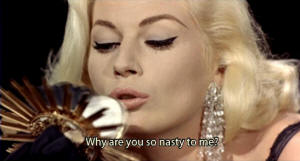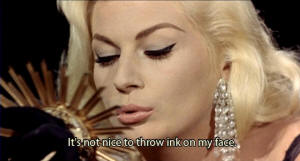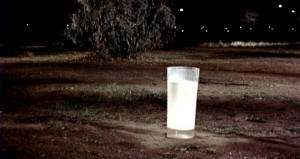by Wikipedia
Accessed: 4/27/22
However, considering on the one hand the long expectation and the just demands of the learned world, on the other the nature and composition of this work, I will confess, I have a desperate moment of my work. Indeed, the Rig-Veda is nothing but a collection of religious hymns, sung at the origin of Indian society, accumulated over time, and preserved in the memory of the sacerdotal races. And these religious hymns, can we not reproach them for bearing the imprint of this mythological spirit which some serious critics reject with a kind of disgust? She no doubt has her faults, this ingenious daughter mythology of the ancient East, this laughing fairy with two faces, this pleasant storyteller with double language, who does not blush to lie to make us accept the truth, who plays with things serious, and who philosophizes while bantering. But if mythology were only the exaggeration of a natural and true language in another respect, would it not be better to listen and try to understand this language than to reject it with disdain? If all idioms, in order to render a metetaphysical idea, are obliged to borrow their expression from the material world, how can one be surprised that myth comes to the aid of religious dogma which seeks to translate itself in the eyes of the mind, and that does he lend it the support of his broad and brilliant metaphors? A religion seems to me to be the representation, by means of external symbols, of the idea that a people has formed of the divine nature. The true philosopher must like to follow and grasp this idea under the mysterious veils with which the ancient hierophants enveloped it.
This is precisely the goal that the reader of this work will propose, supported by the curiosity of science in the midst of a sterile abundance of marvelous fictions and a prolix monotony of pious invocations, astonished by turns or by the childish naivete of thought, or of the poetic magnificence of style; for such are the qualities as well as the faults of this book. But a defect or perhaps a quality of all these ancient bards is to have no sequence, no system in their inventions. They have a capricious allure, which sometimes admits mythological allegory and sometimes rejects it, so as not to be able to hide their thought when they would like to disguise it, and to leave their fiction fully illuminated in advance of the day of truth. There is a certain pleasure in seeing, under the breath of the poet, all these divinities being born, coming to life, taking on variable and changing forms. But it also sometimes seems that, dissatisfied with his lying conceptions, the author shatters the god he has created, and returns to philosophical truth.
In nature there is a movement which is life, a regularity which is intelligence. The life, the intelligence, for the Indian of these first times, it is God; a God who has no name, who is designated only by his attributes. So he is cavi, intelligent; he is asura, author of movement; he is above all vedhas, that is to say that he exists within this inert substance, whose origin is not defined, which is perhaps only an appearance, but to which he communicates penny energy. God is in everything; but all is not God. Pantheism may be in worship, but not in dogma. Indeed, the man who is aware of his weakness seeks support around him; and, in the various parts of this nature which touches his senses, he recognizes the action of the invisible being whose help is necessary to him. He invokes him in the light that enlightens him, in the fire that warms him, in the air that refreshes him, in heaven and earth, in day and night. Wherever he sees a ray of that clarity, of that strength, of that abundance, of that charity which he needs, he worships God.
-- Rig-Veda Or Book Of Hymns, Translated from Sanskrit, by M. Langlois, Member of the Institut, 1848
In politics, a noble lie is a myth or untruth typically of religious nature, knowingly propagated by an elite to maintain social harmony or advance an agenda. The noble lie is a concept originated by Plato as described in The Republic.[2]
Do you not know, I said, that the true lie, if such an expression may be allowed, is hated of gods and men?
What do you mean? he said.
I mean that no one is willingly deceived in that which is the truest and highest part of himself, or about the truest and highest matters; there, above all, he is most afraid of a lie having possession of him.
Still, he said, I do not comprehend you.
The reason is, I replied, that you attribute some profound meaning to my words; but I am only saying that deception, or being deceived or uninformed about the highest realities in the highest part of themselves, which is the soul, and in that part of them to have and to hold the lie, is what mankind least like; — that, I say, is what they utterly detest.
There is nothing more hateful to them.
And, as I was just now remarking, this ignorance in the soul of him who is deceived may be called the true lie; for the lie in words is only a kind of imitation and shadowy image of a previous affection of the soul, not pure unadulterated falsehood. Am I not right?
Perfectly right.
The true lie is hated not only by the gods, but also by men?
Yes.
Whereas the lie in words is in certain cases useful and not hateful; in dealing with enemies — that would be an instance; or again, when those whom we call our friends in a fit of madness or illusion are going to do some harm, then it is useful and is a sort of medicine or preventive; also in the tales of mythology, of which we were just now speaking — because we do not know the truth about ancient times, we make falsehood as much like truth as we can, and so turn it to account.
Very true, he said....
Again, truth should be highly valued; if, as we were saying, a lie is useless to the gods, and useful only as a medicine to men, then the use of such medicines should be restricted to physicians; private individuals have no business with them.
Clearly not, he said.
Then if any one at all is to have the privilege of lying, the rulers of the State should be the persons; and they, in their dealings either with enemies or with their own citizens, may be allowed to lie for the public good. But nobody else should meddle with anything of the kind; and although the rulers have this privilege, for a private man to lie to them in return is to be deemed a more heinous fault than for the patient or the pupil of a gymnasium not to speak the truth about his own bodily illnesses to the physician or to the trainer, or for a sailor not to tell the captain what is happening about the ship and the rest of the crew, and how things are going with himself or his fellow sailors.
Most true, he said.
If, then, the ruler catches anybody beside himself lying in the State,
Any of the craftsmen, whether he priest or physician or carpenter.15
he will punish him for introducing a practice which is equally subversive and destructive of ship or State.
Most certainly, he said, if our idea of the State is ever carried out....
Therefore, as I was just now saying, we must enquire who are the best guardians of their own conviction that what they think the interest of the State is to be the rule of their lives. We must watch them from their youth upwards, and make them perform actions in which they are most likely to forget or to be deceived, and he who remembers and is not deceived is to be selected, and he who falls in the trial is to be rejected. That will be the way?
Yes.
And there should also be toils and pains and conflicts prescribed for them, in which they will be made to give further proof of the same qualities.
Very right, he replied.
And then, I said, we must try them with enchantments that is the third sort of test — and see what will be their behaviour: like those who take colts amid noise and tumult to see if they are of a timid nature, so must we take our youth amid terrors of some kind, and again pass them into pleasures, and prove them more thoroughly than gold is proved in the furnace, that we may discover whether they are armed against all enchantments, and of a noble bearing always, good guardians of themselves and of the music which they have learned, and retaining under all circumstances a rhythmical and harmonious nature, such as will be most serviceable to the individual and to the State. And he who at every age, as boy and youth and in mature life, has come out of the trial victorious and pure, shall be appointed a ruler and guardian of the State; he shall be honoured in life and death, and shall receive sepulture and other memorials of honour, the greatest that we have to give. But him who fails, we must reject. I am inclined to think that this is the sort of way in which our rulers and guardians should be chosen and appointed. I speak generally, and not with any pretension to exactness.
And, speaking generally, I agree with you, he said.
And perhaps the word "guardian" in the fullest sense ought to be applied to this higher class only who preserve us against foreign enemies and maintain peace among our citizens at home, that the one may not have the will, or the others the power, to harm us. The young men whom we before called guardians may be more properly designated auxiliaries and supporters of the principles of the rulers.
I agree with you, he said.
How then may we devise one of those needful falsehoods of which we lately spoke — just one royal lie which may deceive the rulers, if that be possible, and at any rate the rest of the city?
What sort of lie? he said.
Nothing new, I replied; only an old Phoenician36 tale of what has often occurred before now in other places, (as the poets say, and have made the world believe,) though not in our time, and I do not know whether such an event could ever happen again, or could now even be made probable, if it did.
How your words seem to hesitate on your lips!
You will not wonder, I replied, at my hesitation when you have heard. Speak, he said, and fear not.
Well then, I will speak, although I really know not how to look you in the face, or in what words to utter the audacious fiction, which I propose to communicate gradually, first to the rulers, then to the soldiers, and lastly to the people. They are to be told that their youth was a dream, and the education and training which they received from us, an appearance only; in reality during all that time they were being formed and fed in the womb of the earth, where they themselves and their arms and appurtenances were manufactured; when they were completed, the earth, their mother, sent them up; and so, their country being their mother and also their nurse, they are bound to advise for her good, and to defend her against attacks, and her citizens they are to regard as children of the earth and their own brothers.
You had good reason, he said, to be ashamed of the lie which you were going to tell.
True, I replied, but there is more coming; I have only told you half. Citizens, we shall say to them in our tale, you are brothers, yet God has framed you differently. Some of you have the power of command, and in the composition of these he has mingled gold, wherefore also they have the greatest honour; others he has made of silver, to be auxillaries; others again who are to be husbandmen and craftsmen he has composed of brass and iron; and the species will generally be preserved in the children. But as all are of the same original stock, a golden parent will sometimes have a silver son, or a silver parent a golden son. And God proclaims as a first principle to the rulers, and above all else, that there is nothing which should so anxiously guard, or of which they are to be such good guardians, as of the purity of the race. They should observe what elements mingle in their off spring; for if the son of a golden or silver parent has an admixture of brass and iron, then nature orders a transposition of ranks, and the eye of the ruler must not be pitiful towards the child because he has to descend in the scale and become a husbandman or artisan, just as there may be sons of artisans who having an admixture of gold or silver in them are raised to honour, and become guardians or auxiliaries. For an oracle says that when a man of brass or iron guards the State, it will be destroyed. Such is the tale; is there any possibility of making our citizens believe in it?
Not in the present generation, he replied; there is no way of accomplishing this; but their sons may be made to believe in the tale, and their sons' sons, and posterity after them.
I see the difficulty, I replied; yet the fostering of such a belief will make them care more for the city and for one another. Enough, however, of the fiction, which may now fly abroad upon the wings of rumour, while we arm our earth-born heroes, and lead them forth under the command of their rulers. Let them look round and select a spot whence they can best suppress insurrection, if any prove refractory within, and also defend themselves against enemies, who like wolves may come down on the fold from without; there let them encamp, and when they have encamped, let them sacrifice to the proper Gods and prepare their dwellings.
Just so, he said.
-- The Republic, by Plato
In religion, a pious fiction is a narrative that is presented as true by the author, but is considered by others to be fictional albeit produced with an altruistic motivation. The term is sometimes used pejoratively to suggest that the author of the narrative was deliberately misleading readers for selfish or deceitful reasons. The term is often used in religious contexts, sometimes referring to passages in religious texts.
Plato's Republic
Main article: The Republic (Plato)
Plato presented the noble lie (γενναῖον ψεῦδος, gennaion pseudos)[3] in the fictional tale known as the myth or parable of the metals in Book III. In it, Socrates provides the origin of the three social classes who compose the republic proposed by Plato. Socrates speaks of a socially stratified society as a metaphor for the soul,[citation needed] wherein the populace are told "a sort of Phoenician tale":
...the earth, as being their mother, delivered them, and now, as if their land were their mother and their nurse, they ought to take thought for her and defend her against any attack and regard the other citizens as their brothers and children of the self-same earth...While all of you, in the city, are brothers, we will say in our tale, yet god, in fashioning those of you who are fitted to hold rule, mingled gold in their generation, for which reason they are the most precious—but in the helpers, silver, and iron and brass in the farmers and other craftsmen. And, as you are all akin, though, for the most part, you will breed after your kinds, it may sometimes happen that a golden father would beget a silver son, and that a golden offspring would come from a silver sire, and that the rest would, in like manner, be born of one another. So that the first and chief injunction that the god lays upon the rulers is that of nothing else are they to be such careful guardians, and so intently observant as of the intermixture of these metals in the souls of their offspring, and if sons are born to them with an infusion of brass or iron they shall by no means give way to pity in their treatment of them, but shall assign to each the status due to his nature and thrust them out among the artisans or the farmers. And again, if from these there is born a son with unexpected gold or silver in his composition they shall honor such and bid them go up higher, some to the office of guardian, some to the assistanceship, alleging that there is an oracle that the city shall then be overthrown when the man of iron or brass is its guardian.[4]
Socrates proposes and claims that if the people believed "this myth...[it] would have a good effect, making them more inclined to care for the state and one another."[5] This is his noble lie: "a contrivance for one of those falsehoods that come into being in case of need, of which we were just now talking, some noble one..."[6]
This story references the flaws of past societies.
Modern views
Karl Popper
Main article: Karl Popper
Karl Popper accused Plato of trying to base religion on a noble lie as well. In The Open Society and Its Enemies, Popper remarks, "It is hard to understand why those of Plato's commentators who praise him for fighting against the subversive conventionalism of the Sophists, and for establishing a spiritual naturalism ultimately based on religion, fail to censure him for making a convention, or rather an invention, the ultimate basis of religion." Religion for Plato is a noble lie, at least if we assume that Plato meant all of this sincerely, not cynically. Popper finds Plato's conception of religion to have been very influential in subsequent thought.[7]
Leo Strauss
Main article: Leo Strauss
Strauss noted that thinkers of the first rank, going back to Plato, had raised the problem of whether good and effective politicians could be completely truthful and still achieve the necessary ends of their society. By implication, Strauss asks his readers to consider whether it is true that noble lies have no role at all to play in uniting and guiding the polis. He questions whether myths are needed to give people meaning and purpose and whether they ensure a stable society in contrast to the more skeptical attitude which posits that men dedicated to the relentless examination of, in Nietzschean language, "deadly truths" can flourish freely, all the while concluding with an inquiry into whether there can be a limit to the political and epistemic absolutes. In The City and Man, Strauss discusses the myths outlined in Plato's Republic that are required for all governments. These include a belief that the state's land belongs to it even though it was likely acquired illegitimately and that citizenship is rooted in something more than the accidents of birth. Seymour Hersh also claims that Strauss endorsed noble lies: myths used by political leaders seeking to maintain a cohesive society.[8][9] In The Power of Nightmares, documentary filmmaker Adam Curtis opines that "Strauss believed it was for politicians to assert powerful and inspiring myths that everyone could believe in. They might not be true, but they were necessary illusions. One of these was religion; the other was the myth of the nation."[10]
Desmond Lee
Main article: Desmond Lee
"Plato has been criticized for his Foundation Myth as if it were a calculated lie. That is partly because the phrase here translated 'magnificent myth' (p. 414b) has been conventionally mistranslated 'noble lie'; and this has been used to support the charge that Plato countenances manipulation by propaganda. But the myth is accepted by all three classes, Guardians included. It is meant to replace the national traditions which any community has, which are intended to express the kind of community it is, or wishes to be, its ideals, rather than to state matters of fact."[11]
Allan Bloom
Main article: Allan Bloom
Translator Allan Bloom argued for a literal translation and interpretation of Plato's expression:
At Book III 414 Socrates tells of the need for a "noble lie" to be believed in the city he and his companions are founding (in speech). Cornford calls it a "bold flight of invention" and adds the following note: "This phrase is commonly rendered 'noble lie', a self-contradictory expression no more applicable to Plato's harmless allegory than to a New Testament parable or the Pilgrim's Progress, and liable to suggest that he would countenance the lies, for the most part ignoble, now called propaganda..." (ibid., p. 106). But Socrates calls it a lie. The difference between a parable and this tale is that the man who hears a parable is conscious that it is an invention the truth of which is not in its literal expression, whereas the inhabitants of Socrates' city are to believe the untrue story to be true. His interlocutors are shocked by the notion, but—according to Cornford—we are to believe it is harmless because it might conjure up unpleasant associations. This whole question of lying has been carefully prepared by Plato from the very outset, starting with the discussion with old Cephalus (331 b-c). It recurs again with respect to the lies of the poets (377 d), and in the assertions that gods cannot lie (381 e-382 e) and that rulers may lie (380 b-c). Now, finally, it is baldly stated that the only truly just civil society must be founded on a lie. Socrates prefers to face up to the issue with clarity. A good regime cannot be based on enlightenment; if there is no lie, a number of compromises—among them private property—must be made and hence merely conventional inequalities must be accepted. This is a radical statement about the relationship between truth and justice, one which leads to the paradox that wisdom can rule only in an element dominated by falsehood. It is hardly worth obscuring this issue for the sake of avoiding the crudest of misunderstandings. And perhaps the peculiarly modern phenomenon of propaganda might become clearer to the man who sees that it is somehow related to a certain myth of enlightenment which is itself brought into question by the Platonic analysis.[12]
Pious fiction
Examples
Religious context
• Mainstream historical interpretations of the Hebrew Bible (i.e. the Tanakh or the Protestant Old Testament) often consider much of the Tanakh/Jewish Bible to be a pious fiction, such as the conquests of Joshua[13] and the histories of the Pentateuch.[14][15][16] The Book of Daniel has also been described as a pious fiction, with the purpose of providing encouragement to Jews.[17]
• Mainstream historical-critical approaches often view stories in the New Testament such as the Virgin Birth, the Visit of the Magi to Jesus, and others, as pious fictions.[18]
• The Book of Mormon, one of the Standard Works of the Latter Day Saint Movement, has been described as a hoax or pious fiction, and it is not accepted as containing divine revelation by those outside the Latter Day Saint movement.[19]
• The Quran, the sacred text of Islam, has been described as a pious fiction by several authors.[20][21][22] The hadith, likewise, have been described as a collection of various pious fictions by several authors.[verification needed].[21][23]
• Dale Eickelman writes that Muslim jurists employ a pious fiction when they assert that Islamic law is invariant, when in fact it is subject to change.[24]
• The relationship between the modern celebration of Christmas and the historical birth of Jesus has also been described as such.[25][26][27]
Other contexts
• Fredrick Pike describes some morale-boosting efforts during the Great Depression as pious fictions.[28]
See also
• Alternative facts
• Big lie – Gross distortion of the truth
• Bokononism
• Fictionalism
• Lie-to-children
• Morality play
• Paternalism
• Paternalistic deception
• Plato's Laws
• Santa Claus
References
1. Aruffo, Madeline. "Problems with the Noble Lie." Archived 2017-05-17 at the Wayback Machine Boston University. Accessed 4 December 2017.
2. Brown, Eric (2017), "Plato's Ethics and Politics in The Republic", in Zalta, Edward N. (ed.), The Stanford Encyclopedia of Philosophy (Fall 2017 ed.), Metaphysics Research Lab, Stanford University, retrieved 2019-11-26
3. Translator Allan Bloom explains, "The word is generation which is, primarily, 'noble' in the sense of 'nobly born' or 'well bred'..." and refers to Plato's Republic 375a and 409c for comparison (p. 455 n. 65, The Republic of Plato, 2nd edition, New York: Basic Books, 1991).
4. Book 3, 414e–15c
5. Book 3, 415c–d
6. 414b–c
7. "Positive Liberty » Open Society VI: On Religion as a Noble Lie". Archived from the original on 2007-12-09. Retrieved 2019-01-15.
8. Seymour M. Hersh, "Selective Intelligence", The New Yorker, May 12, 2003, accessed June 1, 2007. Archived October 16, 2006, at the Wayback Machine
9. Brian Doherty, "Origin of the Specious: Why Do Neoconservatives Doubt Darwin?" Archived 2008-07-25 at the Wayback Machine, Reason Online, July 1997, accessed February 16, 2007.
10. The Rise of the Politics of Fear; Episode 1: "Baby It's Cold Outside"
11. Plato: The Republic, Penguin Classics, translated by Desmond Lee, p177
12. pp. xviii-xix, The Republic of Plato, 2nd edition, New York: Basic Books, 1991.
13. Borras, Judit, Jewish Studies at the Turn of the Twentieth Century, BRILL, 1999, p 117: ".. the overwhelming consensus of modern scholarship is that the conquest tradition of Joshua is a pious fiction composed by the deuteronomistic school …"
14. Pete Enns. "Briefly, 3 Edgy Things about How the Old Testament Works". Pete Enns. Retrieved 2019-01-15.
15. Pete Enns. "3 Things I Would Like to See Evangelical Leaders Stop Saying about Biblical Scholarship". Pete Enns. Retrieved 2019-01-15.
16. Stanley, Christopher, The Hebrew Bible: A Comparative Approach, Fortress Press, 2009, p 123: "Minimalists begin with the fact that the Hebrew Bible did not reach its present form until well after the Babylonian exile … most the that the story was formulated by a group of elites who wanted to justify their claims to dominate … In other words, the narrative [of the Hebrew Bible] is a pious fiction that bears little relation to the actual history of Palestine during the period it purports to narrate."
17. Carson, D. A. For the Love of God: A Daily Companion for Discovering the Riches of God's Word, Good News Publishers, 2006, p 19: "Many critics doubt that the account of Daniel 4 is anything more than pious fiction to encourage the Jews."
18. Jones, Maurice. New Testament in the Twentieth Century. p. 63.
19. Skousen, Royal, The Book of Mormon: the earliest text, Yale University Press, 2009, p x: "Outsiders generally consider this book [the Book of Mormon] a nineteenth-century hoax or pious fiction …"
20. Berkey, Jonathan P. (2008). The formation of Islam : religion and society in the Near East, 600-1800 ([Online-Ausg.] ed.). New York: Cambridge University Press. p. 286. ISBN 978-0-521-58813-3.
21. Jump up to:a b Crone and Cook, Patricia and Michael (1980). Hagarism: the Making of the Islamic World. Cambridge, UK: Cambridge University Press. p. 277. ISBN 978-0-521-29754-7.
22. Luxenberg, Christoph (2007). The Syro-Aramaic Reading of the Koran: a Contribution to the Decoding of the Language of the Koran. Verlag Hans Schiler. p. 349. ISBN 978-3-89930-088-8.
23. Brown, Jonathan (2011). The Canonization of al-Bukhari and Muslim: the Formation and Function of the Sunni Hadith Canon. Brill Academic Publishers. p. 431. ISBN 978-90-04-21152-0.
24. Eickelman, Dale, Muslim politics, Princeton University Press, 2004, p 26: "Emendations and additions to purportedly invariant and complete Islamic law (sharia) have occurred throughout Islamic history…. Muslim jurists have rigorously maintained the pious fiction that there can be no change in divinely revealed law, even as they have exercised their independent judgment (ijtihad) to create a kind of de facto legislation."
25. Michael White, L. (4 May 2010). Scripting Jesus: The Gospels in Rewrite - L. Michael White - Google Books. ISBN 9780061985379. Retrieved 2011-09-27.
26. Top 20 football chants (2006-12-21). "How December 25 became Christmas Day... - Features, Unsorted". Independent.ie. Retrieved 2011-09-27.
27. http://www.timesonline.co.uk/tol/commen ... 405481.ece[dead link]
28. Pike, Fredrick, FDR's Good Neighbor Policy: sixty years of generally gentle chaos, University of Texas Press, 1995, p 79:
"In the Depression era, a great many Americans, north and south of the border, succumbed to the pious fiction that underlay the Krausist-Areilist-Marxist nonmaterial rewards aspect of good neighborliness… Without the occasional seasoning of pious fictions, concocted by intellectuals who in their delusions of grandeur try to introduce elements of dream live into crude reality, might not the real world be a far more vicious jungle than it is?"

 was mani or Mannus, the progenitor of humanity, which once more forms a special section in the
was mani or Mannus, the progenitor of humanity, which once more forms a special section in the  for Mannus or Mene, the spiritual Moon (Psychomena).
for Mannus or Mene, the spiritual Moon (Psychomena). is Tyr, Zio, also Zeizzo or Erich, the one-armed sword-god, the "generator." His hieroglyph also consists of the sign of Ur
is Tyr, Zio, also Zeizzo or Erich, the one-armed sword-god, the "generator." His hieroglyph also consists of the sign of Ur  and the Tyr-rune
and the Tyr-rune  , which symbolizes the solar ray, the solar arrow as impregnator (phallus). His sword, his one-arm, his phallus erectus, clearly designates him as the provider of increase, the multiplier or generator under whose guardianship marriages stood, but war as well, since war increased property through the taking of booty and drove out vermin. The fourth, Mercury
, which symbolizes the solar ray, the solar arrow as impregnator (phallus). His sword, his one-arm, his phallus erectus, clearly designates him as the provider of increase, the multiplier or generator under whose guardianship marriages stood, but war as well, since war increased property through the taking of booty and drove out vermin. The fourth, Mercury  , is Wuotan, whose rune (othil
, is Wuotan, whose rune (othil  ) is in this instance reversed
) is in this instance reversed  and connected to the sign of increase
and connected to the sign of increase  to form
to form  , indicating the increaser, bringer of luck, the wish-god.
, indicating the increaser, bringer of luck, the wish-god.  , and means primeval generation, or "the one who generates things out of the Ur"
, and means primeval generation, or "the one who generates things out of the Ur"